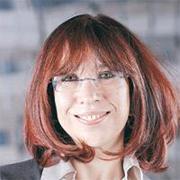E-bültenlerGünlük Egazete© Copyright 2024 Hürriyet Gazetecilik ve Matbaacılık A.ŞKullanım Koşulları,Gizlilik Politikası,İletişim için bu linklerikullanabilirsiniz. Login olduğunuz taktirde kullanım koşullarınıve gizlilik politikasını kabul etmiş olursunuz.
The TÜSİAD and the 1970s in Turkey
Paylaş
LinkedinFlipboardLinki KopyalaYazı Tipi
The Feriye Restaurant right next to the Ortaköy Mosque with one of the breath-taking sceneries in Istanbul is a venue for extraordinary meetings other than having a top-notch cuisine. I’ve been there twice this week. First, I attended a Turkish Industrialists’ and Businessmen’s Association, or TÜSİAD, meeting for the promotion of two new books prepared by the support of the first TÜSİAD president, Feyyaz Berker, on the most turbulent two decades of Turkey that stuck in two military coup d’etats then.
In the second meeting, I listened to the members of the Independent Turkey Commission including the Nobel Peace Prize winner, Martti Ahtisari, in addition to Emma Bonino, Hans van den Broek, Albert Rohan and Marcelino Aguirre whom were brought together by the efforts of the Open Society Institute. It was so good to hear these renowned politicians who truly believe in Turkey’s accession to the European Union. But it was painful to remember those dark, chaotic years in Turkey which were full of assassinations, clashes and coup d’etats and those were the TÜSIAD’s first 10 year.
A thought factory
At the TÜSİAD meeting, we were welcomed at the door by Berker who chaired TÜSİAD for nine years. The TÜSİAD was established only a month after the March 1, 1971 military intervention: in the most painful days where bosses of the time faced reactions for ideological reasons. In short, the "riches’ club" was formed in a period of chaos.
Back in those years, after having the last meeting with the founders at the famous Abdullah Restaurant, the late Vehbi Koç took Berker’s arm and said, "Say so then we have decided to form a factory of thought today," Berker continued. As Koç says the TÜSİAD works as a "thought factory" and tries to make some contributions to democracy. For instance, serious reports that they published only three years after being established shed a light on both politics and bureaucracy in Turkey. Prepared with the contributions of numerous faculty members, the TÜSİAD reports back then filled the gap for "think-tank" organizations in a way. At the Feriye gathering we returned back to the years of turmoil and listened how Berker’s house was bombed. Berker told that he was at home together with his wife and two daughters when a hand grenade was thrown in through the window. They were safe but the house was damaged badly. Berker’s house is not the only one exposed to bomb attacks in the late 1970s. The houses of Vehbi Koç and Nejat Eczacıbaşı were bombed as well.
Attacks were committed right after the TÜSİAD published advertisements against the government in newspapers and magazines one after the other. The late Prime Minister Bülent Ecevit of the time saw the ads but didn’t pay attention. Later on he said the advertisements played a role in toppling the government. The TÜSİAD working with the brightest of the period offered the office of secretary-general to the late President Turgut Özal who put his mark on the Turkish politics just like Ecevit did. Back then, Özal was working for the World Bank so he didn’t entertain the idea. "I want to have an active duty as the president of a company making investments in the East," Özal said. Upon his return from the World Bank, Özal indeed took charge of an investment by the Sabancı Family in Eastern Turkey.
A thought factory
At the TÜSİAD meeting, we were welcomed at the door by Berker who chaired TÜSİAD for nine years. The TÜSİAD was established only a month after the March 1, 1971 military intervention: in the most painful days where bosses of the time faced reactions for ideological reasons. In short, the "riches’ club" was formed in a period of chaos.
Back in those years, after having the last meeting with the founders at the famous Abdullah Restaurant, the late Vehbi Koç took Berker’s arm and said, "Say so then we have decided to form a factory of thought today," Berker continued. As Koç says the TÜSİAD works as a "thought factory" and tries to make some contributions to democracy. For instance, serious reports that they published only three years after being established shed a light on both politics and bureaucracy in Turkey. Prepared with the contributions of numerous faculty members, the TÜSİAD reports back then filled the gap for "think-tank" organizations in a way. At the Feriye gathering we returned back to the years of turmoil and listened how Berker’s house was bombed. Berker told that he was at home together with his wife and two daughters when a hand grenade was thrown in through the window. They were safe but the house was damaged badly. Berker’s house is not the only one exposed to bomb attacks in the late 1970s. The houses of Vehbi Koç and Nejat Eczacıbaşı were bombed as well.
Attacks were committed right after the TÜSİAD published advertisements against the government in newspapers and magazines one after the other. The late Prime Minister Bülent Ecevit of the time saw the ads but didn’t pay attention. Later on he said the advertisements played a role in toppling the government. The TÜSİAD working with the brightest of the period offered the office of secretary-general to the late President Turgut Özal who put his mark on the Turkish politics just like Ecevit did. Back then, Özal was working for the World Bank so he didn’t entertain the idea. "I want to have an active duty as the president of a company making investments in the East," Özal said. Upon his return from the World Bank, Özal indeed took charge of an investment by the Sabancı Family in Eastern Turkey.
Paylaş
LinkedinFlipboardLinki KopyalaYazı Tipi








